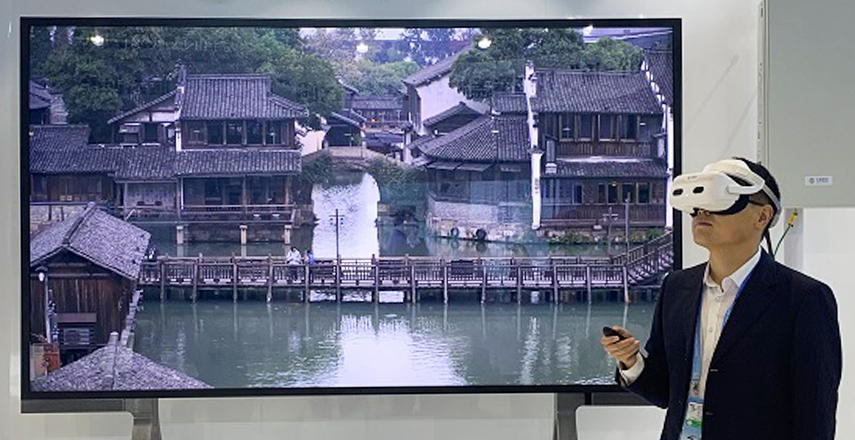Huawei demonstrates VR & 8K streaming on new ultra-high-speed 5G network

Huawei hosted its fifth Asia-Pacific Innovation day in Chengdu last week, showcasing a number of innovative applications which work alongside their global push for 5G dominance.
In a press release, the Chinese telecoms giant said: “Enhancing consumer experience and empowering industrial digitization are the main goals of 5G deployment.”
In their push for a full-scale 5G rollout across China, starting in larger cities first, Huawei is keen to demonstrate the capabilities of their new high-bandwidth, low latency network.
5G is generally regarded as the next step in enabling the next great technological innovations, without which many of these advancements would not be possible.
Amongst the innovations displayed at the event were applications for virtual reality, 8K video, drones, telemedicine and a smart connected ambulance.
Chengdu is famous for its panda sanctuaries, so Huawei has shown an eagerness to apply their tech at a nearby centre to raise awareness. Using virtual reality, they were able to broadcast a live 360-degree panorama to delegates wearing VR headsets. The 5G network, supplied by Huawei, was used to beam the broadcast, immersing delegates inside the enclosures at the sanctuary.

Their 8K enabled screen displayed live broadcasts in realtime, using their “ultra-high-speed” 5G network. 8K has a resolution four times greater than the current 4K, so it is only possible with a bandwidth greater than 100MB/s, which is only achievable with 5G, according to the press release.
Huawei is the frontrunner in 5G tech
Huawei claims that the “commercial use of 5G networks will bring new experiences to consumers, enable industrial digitization, facilitate innovation in industrial applications, and create greater social and economic value.”
Worldwide, Huawei is the foremost entity in the race for 5G dominance. Since 2009, they have invested billions in research and development. It appears that European networks are lagging some way behind, as China and South Korea – who have become the world’s first for full-scale use of 5G – are making significant leaps forward, enabling new technological innovations at a significant rate of progress.
